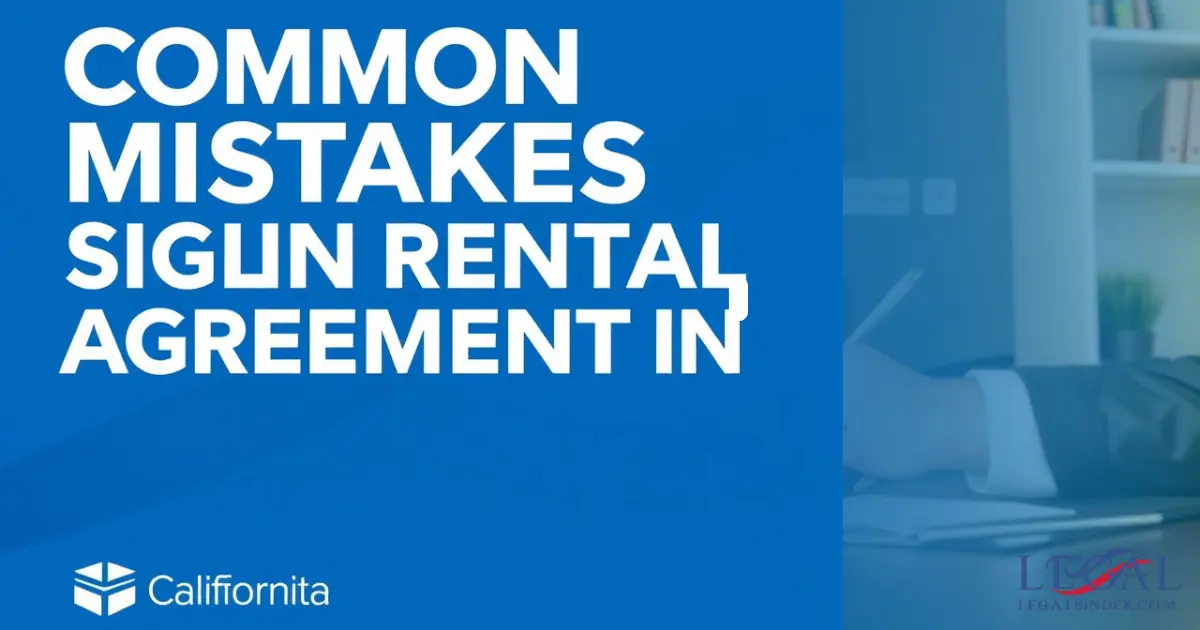Physical Address
304 North Cardinal St.
Dorchester Center, MA 02124
Physical Address
304 North Cardinal St.
Dorchester Center, MA 02124

Signing a rental agreement is one of the most important steps when moving into a new home. Yet, many people in California rush through the process without carefully reviewing the details. Imagine discovering six months later that your landlord can raise rent unexpectedly, or that you’re responsible for repairs you thought were covered. These rental mistakes in California can cost you money, peace of mind, and even your home.

This guide will walk you through the most common mistakes people make when signing rental agreements in California, and more importantly, how you can avoid them. With the right knowledge, you’ll feel empowered and secure as you take on your next rental journey.
For more rental and legal resources, visit our homepage at USALegalBinder.com.
Before diving into specific errors, it’s important to understand why they happen. Many tenants in California are first-time renters or don’t fully understand their rights under state law. Likewise, landlords sometimes use generic agreements that don’t comply with California’s requirements.
Many tenants skim through the agreement. This can lead to surprises about rent increases, responsibilities, or hidden fees.
California law limits security deposits, but landlords may overcharge if tenants don’t know their rights.
Resource: California Department of Consumer Affairs
Tenants often assume landlords handle all repairs. However, many leases shift certain responsibilities to tenants.
Rent increases are heavily regulated in California, especially under AB 1482 (Tenant Protection Act). Ignoring this can result in unexpected financial strain.

Resource: California Department of Housing and Community Development
Many landlords download free templates online that don’t comply with California-specific laws. This can make agreements invalid in court.
California requires disclosures like lead-based paint (for older properties) and mold risks. Skipping these puts landlords at risk of lawsuits.
Rent control cities (e.g., Los Angeles, San Francisco) have stricter rules than the state. Landlords who ignore them may face penalties.
Don’t rely on random templates or unverified advice online. Use trusted resources:
Tenants often sign without reading the full lease, leading to misunderstandings about rent, deposits, or maintenance.
No. California law sets strict limits on deposits. Report violations to the Department of Consumer Affairs.
Oral agreements may be valid for short-term rentals, but they are risky. Written agreements are always safer.
Review state resources or consult a legal professional. Reliable sources include California Attorney General’s Office.

Avoiding rental mistakes in California starts with awareness. By carefully reviewing your lease, understanding your rights, and relying on official resources, you can prevent costly errors and protect your future. Whether you’re a tenant seeking a safe home or a landlord managing properties, knowledge is your strongest defense.
Take the time to learn, ask questions, and choose wisely—you’ll be setting the stage for a smooth, secure, and positive rental experience.